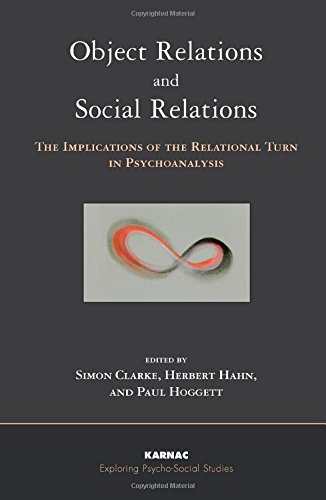Object Relations and Social Relations: The Implications of the Relational Turn in Psychoanalysis

Book Details
- Publisher : Routledge
- Published : 2008
- Cover : Paperback
- Pages : 232
- Category :
Psychoanalysis - Catalogue No : 26201
- ISBN 13 : 9781855755635
- ISBN 10 : 1855755637
Reviews and Endorsements
'Don't dare to say "but we do this already!" Ranging from clinical to cultural analysis, and exploring societal and organisational dilemmas, this important book sends out a challenge to all contemporary psychotherapy: it is not OK merely to claim that one is "relational". For the emerging tradition of relational psychoanalysis is spreading from its base in the United States and worldwide levels of interest are justifiably high. Drawing on, but going beyond, object relations, self psychology and the interpersonal approach, and utilizing what is necessary from feminism, post-structuralism, and social constructivism, this is the twenty-first century approach that cannot be ignored.'
- Andrew Samuels, Professor of Analytical Psychology, University of Essex
'Object Relations and Social Relations presents an introduction to inter-subjective approaches in the field of social relations. It provides a wide and interesting collection of chapters including the history of inter-subjective theories and their application in clinical settings, social research, organisational consultancy and teaching. The book does not stay with a unitary approach, but offers different perspectives and theoretical alignments thus demonstrating the variety of possible applications from inter-subjectivity as a broad concept. It also fills a gap by introducing this variety and orientation to practitioners. Included in the various chapters are many case examples and vignettes. It is always helpful to have such examples because the reader can follow the authors in understanding these from an inter-subjective viewpoint or, indeed, apply their own independent analysis and thus generate a critical analysis. The book will be of interest to those wanting to explore social relations from an inter-subjective viewpoint and hopefully it will lead to a series of further explorations within this influential perspective.'
- Susan Long, RMIT University, Melbourne, Australia

